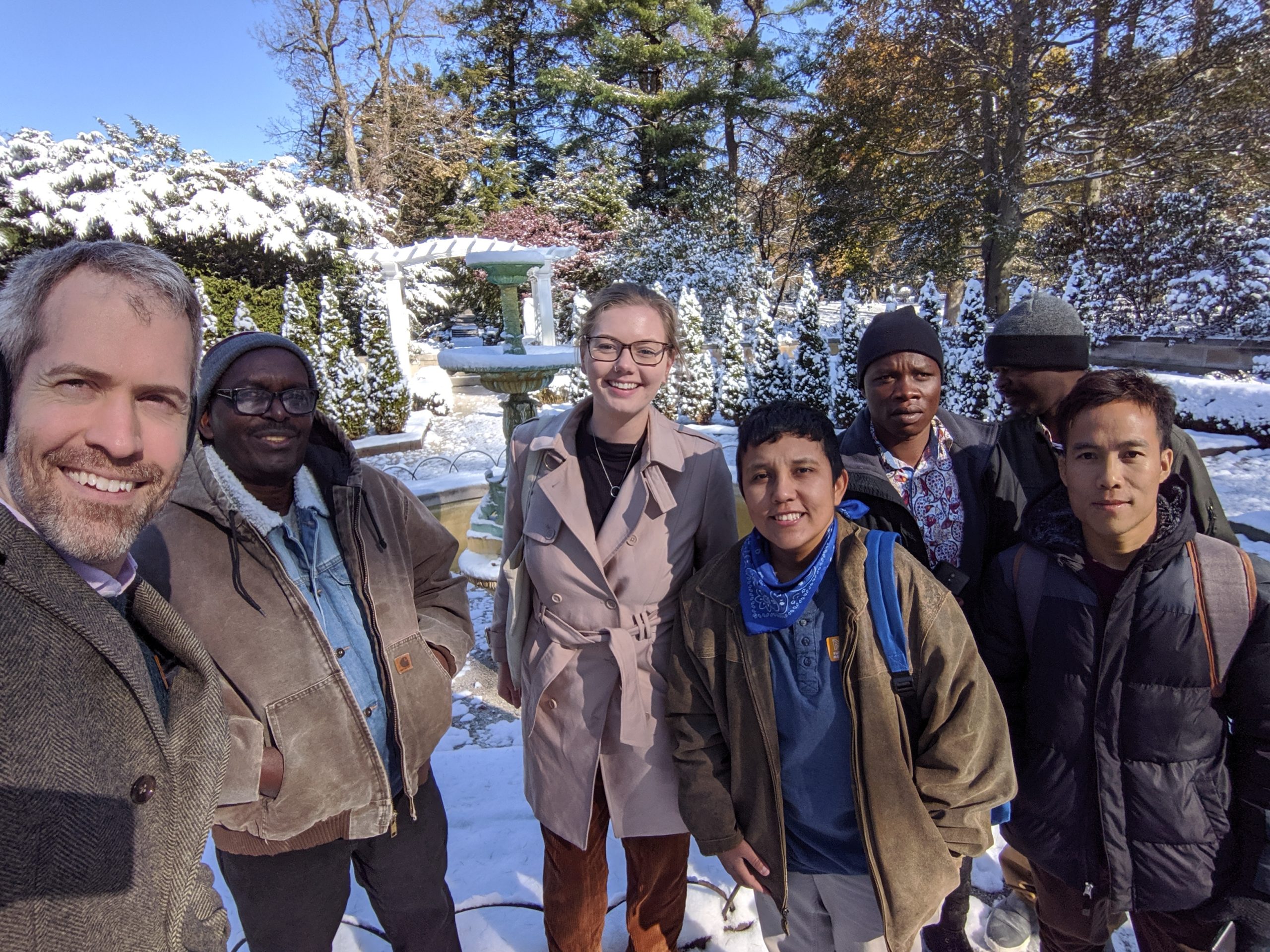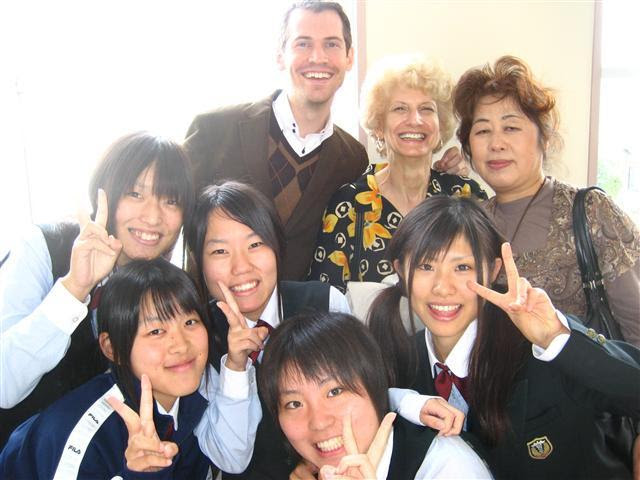Volunteer Spotlight: Jacob Dalton
We are grateful for volunteers like Jacob Dalton who make a difference in the lives of refugees. Jacob has been teaching English classes at the Exodus office for over 18 months and has continued to teach clients virtually during the coronavirus pandemic.
1. Why did you choose to volunteer at Exodus?
I went to college to become a scientist. While I’ve almost always worked as a scientist, in my late 20’s I sold my house, car, and belongings and took a gig as an English teacher in Sasebo, Japan at a public high school as a member of the JET Programme for three years. I returned from Japan in 2011 and found work again as a scientist here in the midwest, but it wasn’t until I heard about Exodus that I felt like I had found a good match for everything I had learned about teaching English as a foreign language and a mission I felt passionate about.
2. What has the volunteer experience been like for you?
Teaching adults is different than teaching high school students, but the transition has felt natural. My students are thoughtful, funny, engaged, and a pleasure to teach. They’re willing to laugh, to try new things, and to make mistakes they can learn from. And of course, the staff at Exodus does a remarkable job of helping them adjust to their daily life in Indianapolis. Because of that my students are relaxed and focused on class. Without that kind of support I think it would be very hard to teach.
3. What are some of your favorite moments?
Another member and I took a group of students to Newfields to see the first snow of the season. Art can be a universal love language for people of any background, and it was a joy to see them interact with art and nature and tell me stories about art and nature in their own countries. In Indianapolis it seems like so much of their day-to-day is focused on adapting to and surviving in America, so it was great to see them cut loose a little in the gardens among the snow. In fact, for most of them it was the first time they had ever seen snow!
4. What has the experience taught you?
It’s hard a question to answer. It’s both a humbling and empowering experience. It’s funny how to you can float from feeling a bit of reverence at the scale of what’s happening in our world and in our country, and in the next find yourself simply enjoying a moment with a group of individuals. I find the “can-do” attitude of refugees striking. Maybe it’s because learning English ranks pretty low in the list of challenges they’ve had to deal with in their lives? I don’t want to project, but I’ve certainly gotten that impression.
It’s also given me a lot to think about with respect to my own religion. That’s a lot to unpack in this format, but suffice to say I’ve thought a lot about what it means to say “no” in the face of those who need our help.
5. What do you wish other people knew about refugees?
I think many people understand that refugees go through a lot of difficulty in their home country and in the process of gaining refugee status. What was surprising to me is how focused and cheerful my day-to-day interactions with refugees have been, and that the work itself is a lot of fun. My students are all individuals, but collectively they are funny, insightful, and eager and I really admire their determination. Also, I only vaguely understood what a refugee is and what refugee status implies, and it’s something I wish was better known. Refugees go through many, many layers of bureaucracy to make it to this country. So many of them are turned away based on irrational fears that make even less sense when you consider the screening processes they go through.
6. How has COVID-19 impacted your volunteer experience?
As it has for many people across the country, we’ve now adjusted to working over Zoom. There was a technology gap we had to bridge with our students who come with mixed experience in installing apps and signing into meetings with passwords. We’ve also had to talk through some of the fear and expectations that come with the changes in health, work opportunities, and the availability of groceries (in addition to, you know, learning English).
That said, like in all other aspects, the students are resilient and dedicated and we’ve found that eLearning also comes with opportunities for new ways for students to interact with the lesson. It’s also enabled many who were unable to come before due to transportation or child-care issues to now regularly participate in our lessons. One of my favorite surprise developments is that students now ask me for time to speak directly to their classmates in English about their daily lives.



